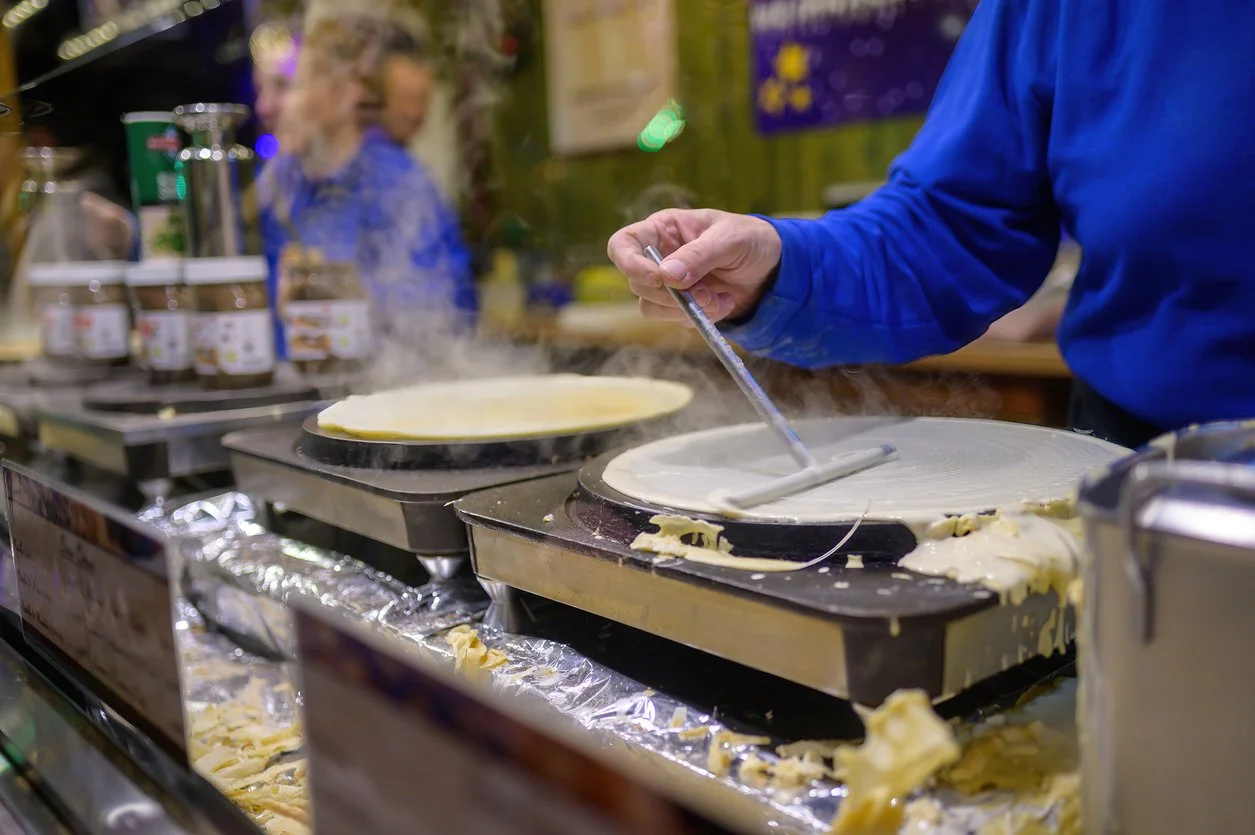Baked From Home: How to Start a Bakery Business from Home
Discover > Texas Home Cooking > Baked From Home: How to Start a Bakery Business from Home
Starting a home bakery is probably one of the most convenient ventures any pastry or cottage food-savvy entrepreneur can venture into. Of course, it will come with challenges because commercial food production has specific policies that you have to abide by.
So, how can I start my own cooking business from home? Once you've decided to start a home bakery in Texas, you'll want to make sure that your business is successful. This guide will provide you with the information and resources necessary for starting a home bakery in the Lone Star State.
Your Home Baking Business: Getting Started
Sharing your home-grown passion for baking with the world through your very own bakery business and operating it from your own home is no easy feat. But where there's passion, there is always the will to move forward. Before realizing your dream of selling piles of baked goods from your home-based bakery very own home bakery business, there are certain things that you have to remember.
This is where a solid bakery business plan comes in. With proper planning, research, and studying your target market, you'll be able to see your small business bear the fruits of all that hard work.
Cottage Food Laws in Texas: Navigate the regulations surrounding cottage food laws in Texas, ensuring you have the knowledge to start and operate your home-based food business within the legal framework.
Get the Necessary Permits and Licensing
For food entrepreneurs who are planning to open a home bakery food business in Texas, there are several permits and licenses you'll need to obtain before you can move forward with your plans. Here's an overview of the necessary permits and licensing for a home bakery food business in Texas.
One of the first steps is obtaining a Certificate of Occupancy from your local fire marshal. This certifies that the business structure and location you plan to operate from meet all necessary fire safety requirements and standards. You'll also need to register with the Texas Department of State Health Services as a food manufacturer. Once registered, you'll receive an Operational Permit that allows you to produce food items following Texas state laws.
How to Get a Business License in Texas: Navigate the process of obtaining a business license in Texas with our step-by-step guide, ensuring you have the necessary permits to operate your business legally.
The next step is to obtain a Special Event Permit from your local health department. This allows you to operate at temporary locations such as farmers' markets or food festivals. Additionally, if you plan to sell products over the internet or through mail-order, you'll need a Retail Food Establishment license from the Texas Department of State Health Services.
Texas Home Food Businesses: What You Need to Know: Gain insights into the regulations and requirements for home food businesses in Texas, ensuring you are well-informed as you embark on your culinary ventures.
Finally, you'll need to get a Food Handler's Permit from your local health department. This permit is required for anyone who prepares or handles food in the course of their business. Without this permit, you won't be allowed to operate legally in Texas.
Familiarize Local Zoning Laws and Health Regulations
If you're thinking about starting your own home bakery business in Texas, it's important to be aware of the local zoning laws that could affect your business. Local zoning laws are regulations enforced by municipalities and counties to determine how the land can be used. Depending on where you live, there may be restrictions on the types of products that can be produced or sold from your home kitchen.
How to Start a Homestead: Embark on the journey of creating your own homestead with our comprehensive guide on how to start, offering valuable insights into the steps and considerations for homesteading.
In Texas, zoning laws will vary from county to county and even from city to city within the same county. The first step is to research your local regulations and determine what type of bakery business is allowed in your area. Local zoning codes should specify whether you are allowed to just sell baked goods and food products directly out of your home or if you will need to obtain a commercial kitchen license.
Home bakery businesses in Texas should comply with the regulations surrounding food safety and proper food handling and sanitation. The state has specific rules that must be followed to produce and sell food products from your home kitchen. Additionally, you may need to take a food safety and sanitation course to obtain a business license.
How to Start a Ranch in Texas: Delve into the specifics of starting a ranch in Texas, covering everything from land acquisition to livestock management in our comprehensive guide.
Also, it's important to consider any restrictions on the types of products you can produce or sell from your home kitchen. Local authorities may have limits on items such as alcoholic beverages, fireworks, hazardous substances, and explosives. Additionally, some counties also have specific regulations regarding the sale of food products online or in grocery stores.
It's All About Market Research
Once you have all the paperwork in order, you can start thinking about marketing your business. One great way to get the word out about your bakery is by starting a website or blog. This can help you reach potential customers and build an online presence for your business. Additionally, create social media accounts on platforms like Facebook and Instagram to further promote your brand.
Start by learning who your potential customers are and what their needs are. Look at things like demographics, buying habits, preferences, etc. This will help you refine your target audience so that you can focus on providing the best services to them.
Market trends are constantly changing, so it’s important to stay on top of them. Keep an eye out for potential opportunities and threats related to the baking industry in Texas.
Of course, don’t forget to ask your customers directly what they think about your products and services. This can be done through surveys, focus groups, interviews, or even online reviews. Your customers can provide valuable insights that you won’t get from market analysis alone.
The Texas Cottage Food Law: What You Need to Know: Understand the intricacies of the Texas Cottage Food Law with our guide, providing essential information for those looking to start a home-based food business in the state.
The Home Bakery Business: A Labor of Love
Finally, remember that starting a home bakery in Texas requires hard work and dedication. Don't be afraid to ask for help if you feel overwhelmed with starting your business. There are plenty of resources out there that can guide you through the process and make sure your bakery is going to take off.
Is It Time to Start Your Own Texas Homestead?: Assess whether it's the right time for you to start your own Texas homestead by exploring key factors and considerations in our informative guide.
Having the necessary permits and licensing is an important part of running a successful home bakery business. It not only shows that you are operating within the regulations set forth by local health departments and state governments, but it also gives customers peace of mind when purchasing products and baked goods from your business. It is also important to take the time to research and understand all of the permits and licensing requirements so that you can ensure your business is compliant.
How to Become a Farmer: Discover the path to becoming a farmer with our guide, providing essential insights and practical steps for those aspiring to cultivate the land and contribute to sustainable agriculture.
By taking the steps to obtain the necessary permits and licensing for a home bakery business in Texas, you can help protect the health of customers, getting your food safety certification shows responsible business practices, and you can have peace of mind. Texas has a wealth of craft bakeries, such as Blue Baker Craft Bakery & Pizzeria, College Station TX, Wlidflower Baking Co. Anna TX and Skull and Cakebones, Austin TX.
How to Become a Farmers Market Vendor: If you're considering selling your farm products at a farmers market, our guide offers valuable advice on how to become a farmers market vendor, from planning to execution.







